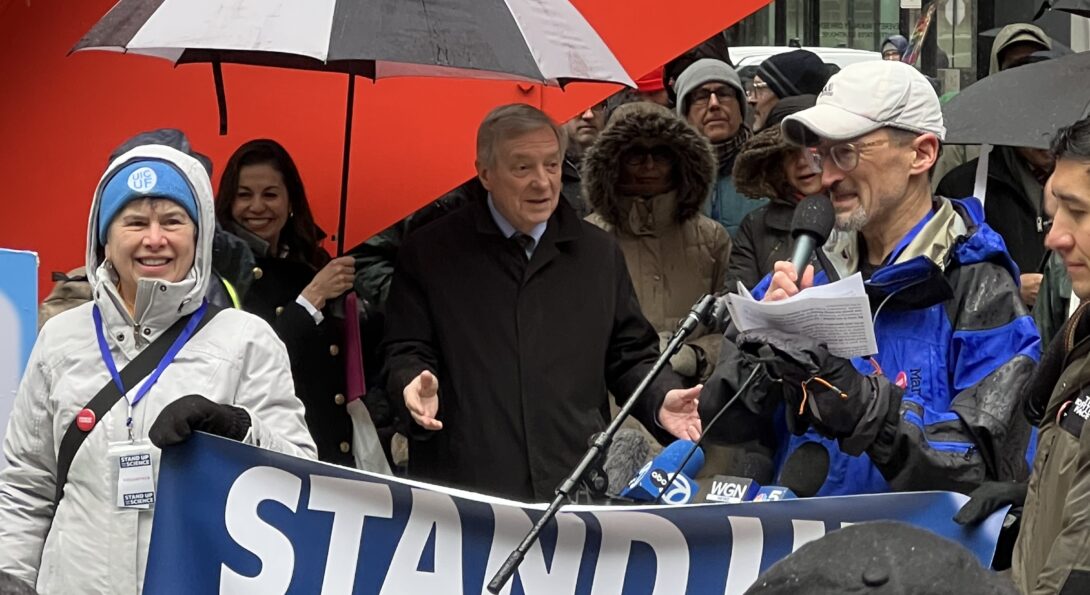AHS faculty stands up for science

Introduction
Several AHS faculty members joined hundreds of researchers and concerned citizens in Federal Plaza on March 7 for a Stand Up for Science rally. Events were held nationwide calling on policymakers to defend scientific discovery, retain public access to information and protect investigators.
Timothy Koh, professor in the UIC Department of Kinesiology and Nutrition, has assumed a leadership role in this fight. He has spent more than 15 years studying wound healing in people with diabetes, most recently on a grant from the National Institutes of Health, which had run its course in February. Preparations for the renewal of this grant were underway as early as fall 2024, and after receiving positive feedback about the continuation of the grant, Koh was only recently notified that the advisory council meeting to decide on funding was canceled. No reason for the cancellation was provided.
All communications from federal health agencies, including messages from NIH, are being held under an administrative freeze, leaving researchers with questions about their projects in the dark. Between the communication freeze and deep funding cuts — NIH allocates $1.2 billion to Illinois universities and hospitals alone — the scientific community is eager to put up some resistance.
Koh spoke at the Chicago Stand Up for Science rally, participated in a press conference led by UIC United Faculty back in February and has shared his story widely to illustrate the serious impacts these policies will have.
“It’s breathtaking to think they’re not funding new grants for anything — cancer, heart disease, diabetes — all the major health problems in the U.S.,” Koh said.
He explained that removing financial support also creates immediate consequences, hampering disease containment efforts, for example, or disrupting the research economy by limiting jobs and harming suppliers.
Beyond funding issues, Koh and his fellow researchers are concerned about political interventions into scientific studies. Active research projects that include elements the administration deems inappropriate have been forced to stop work. More concerning, according to Koh, is the pressure some feel to self-censor proposals based on vague guidance to avoid topics related to diversity, equity and inclusion.
At the February press conference outside Student Center West, Koh and his peers hoped to spotlight these issues for the local community. Footage was broadcasted across Chicago media, but when one of Koh’s colleagues in California mentioned seeing him on television, Koh knew he and his peers could make a larger difference.
Shortly thereafter, he was contacted by Illinois senator Dick Durbin’s office. In a speech supporting NIH on the senate floor, Durbin mentioned Koh by name and emphasized the importance of research like his.
Koh continued the momentum by giving a speech at the Stand Up for Science rally, which was organized in short order by a Chicago-based team responding to the organization’s national call to action. According to KN professor and associate head Giamila Fantuzzi, who also attended, the quick-response rally was a heartening display.
“I was impressed by the energy and motivation of the participants and the speakers,” Fantuzzi said. “Scientists and researchers as a group are not famous for direct action, but the current situation is touching us directly and I am glad to see people reacting.”
Koh also finds himself assuming new responsibilities in the face of these challenges.
“Like most scientists, I was just driven by the discovery,” said Koh, “and when I was going through training, there wasn’t a lot of emphasis on science advocacy. But if people are willing to listen, I’m willing to talk about the way I see these problems.”